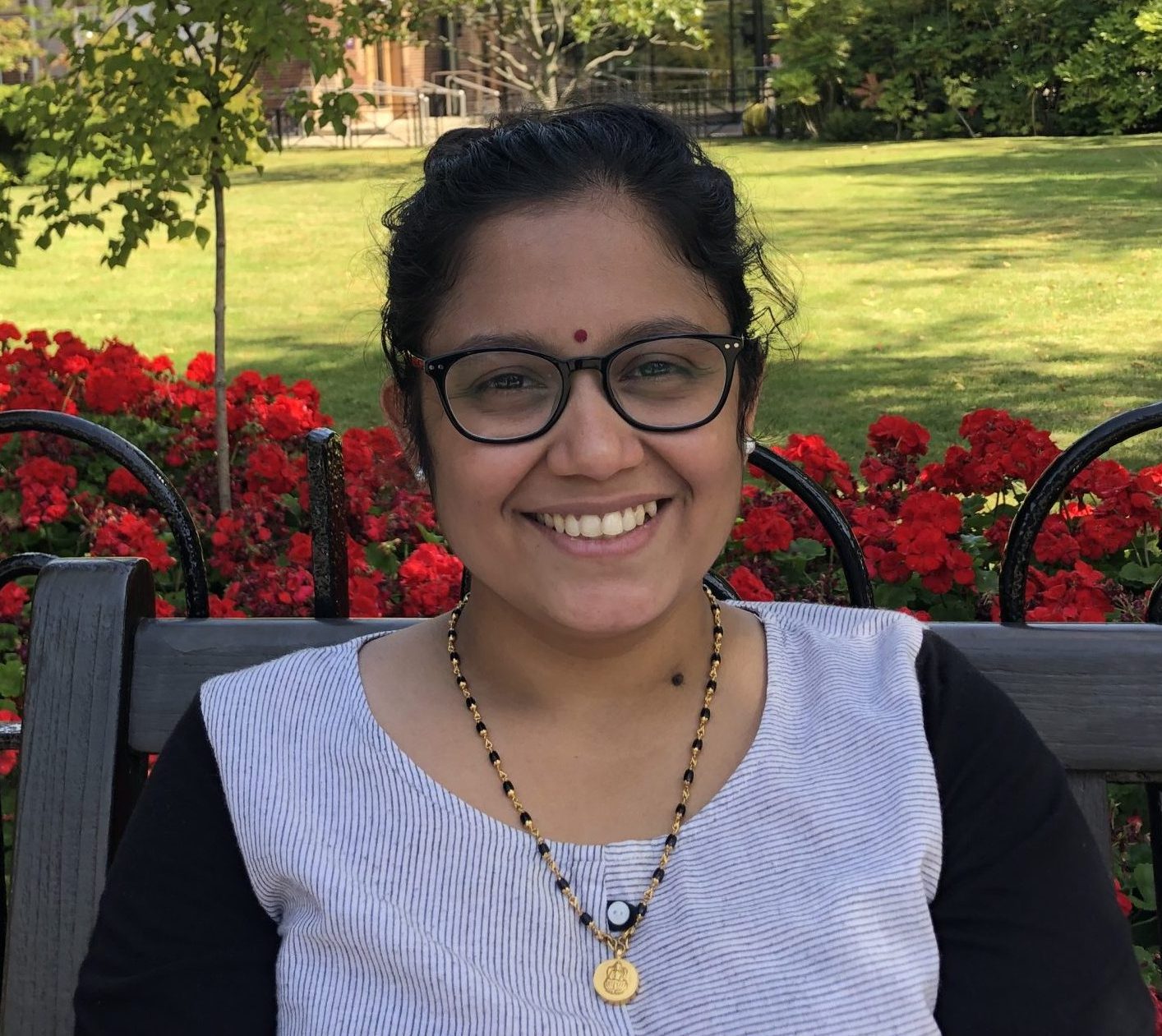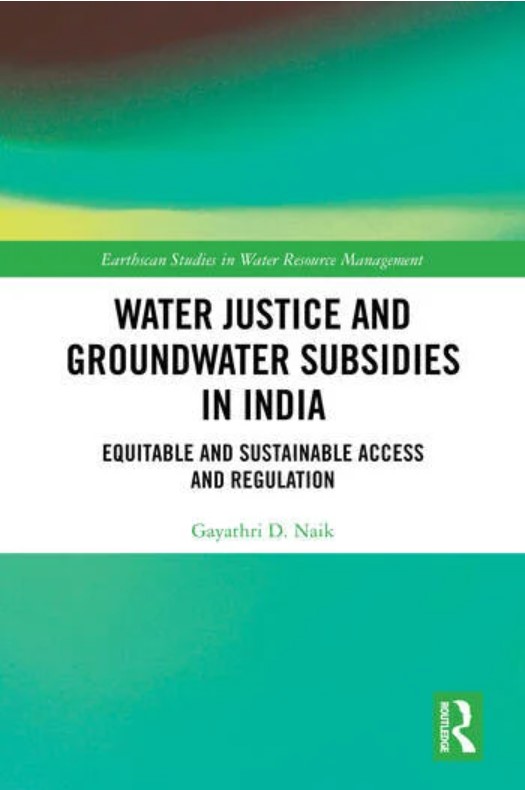Dr. Gayathri D. Naik on her New Book – “Water Justice and Groundwater Subsidies in India: Equitable and Sustainable Access and Regulation.”
October 7, 2024
 We congratulate our faculty member Dr. Gayathri D. Naik on her new book “Water Justice and Groundwater Subsidies in India: Equitable and Sustainable Access and Regulation“, published by Routledge. This book examines the impact of water-related subsidies on social and distributive equity and environmental sustainability in groundwater access and regulation in India. In this interview, we ask Gayathri to share more about her book and the process of writing it.
We congratulate our faculty member Dr. Gayathri D. Naik on her new book “Water Justice and Groundwater Subsidies in India: Equitable and Sustainable Access and Regulation“, published by Routledge. This book examines the impact of water-related subsidies on social and distributive equity and environmental sustainability in groundwater access and regulation in India. In this interview, we ask Gayathri to share more about her book and the process of writing it.
What was your vision or inspiration behind this book?
I hail from the Alappuzha District in South Kerala, which is bordered by the Vembanad Lake on one side and the Arabian Sea on the other. I have never encountered water issues (quality and quantity) in my home town, Cherthala, where water was plenty. However, reading about the Plachimada struggle in early 2000s that happened in Palakkad District in North Kerala, where indigenous community members fought against the MNC giant, Coco-Cola for their uncontrolled exploitation of groundwater and consequent legal battle in the High Court of Kerala was a turning point for me. The two divergent approaches of the same High Court applying two different legal principles in this case that addressed groundwater regulation led me to research groundwater regulation in India and international water law during my LLM days at the South Asian University (SAU). This journey from SAU ended at SOAS, University of London. At SOAS, for my PhD, I studied the intersections of two determining factors in groundwater access, allocations and regulations in India- subsidies and the land-water nexus-based allocation mechanisms.
This book is an edited version of my PhD thesis, where I examined the intersections and implications of water-related subsidies on groundwater access, allocations and regulations in India. I was inspired to examine this aspect in the light of right-to-water jurisprudence in India developed by the judicial decisions reflecting a rights-duty paradigm in drinking water and the States’ welfarist approach to ensuring food security by promoting equitable and inclusive water access for irrigation.
What are the primary focus areas in the book? Are there any specific issues or challenges that the book addresses?
or challenges that the book addresses?
This book focuses on the need to reconceptualise groundwater regulation in India. The current regulatory framework based on the land-water nexus evolved from the common law during the British era. This perpetuates the socially and historically inherited social and economic inequity in access and allocations.
This book argues that adopting a water justice framework is essential to ensure equitable and sustainable access to and regulation of groundwater by balancing anthropogenic and ecological water needs. The inherent inequity resulting from property rights-controlled groundwater access gets widened by the social, political, and economic factors determining the subsidy beneficiaries.
Arguing for a shift to a new paradigm in water governance, the book critically examines the feasibility of the public trust doctrine and rights of nature discourse to analyse the best suitable regulatory framework that can balance the human right to water and ecological sustainability in groundwater resources. It demonstrates the feasibility of adopting various environmental law principles that balance human rights to water and nature. It argues that the current public trust doctrine cannot address these inequities due to its anthropogenic bias and property rights link. This book examines the applicability of the rights of nature discourse instead of these property rights-based regulations to incorporate and mainstream the concerns of aquifer protection in water governance.
Who do you think should read the book?
This book will interest students, scholars, and practitioners of water law and policy, environmental law, water and social justice, development studies, and political ecology.
Do you think there is a need for more such books in this field? If yes, why?
Yes, I feel there is a need for more books in this field, especially on legal scholarship in the groundwater sector. Currently, most works focusing on groundwater and subsidies are from political ecology, developmental studies, and economics. We need more scholarship from Indian scholars working in this sector to drive law and policy framework changes where equity and inclusiveness in access and allocations get attention over proprietary rights.
Dr. Gayathri Naik’s book can be accessed here.

